 | Chemical Society (Great Britain) - Chemistry - 1893 - 820 pages
...combination of the acid and base. Multiply A into the equivalent weight of the acid, B into that of the base, and divide the sum of the products by the sum of the equivalents : call the quotient D. Subtract G from I) and multiply by 100/D. The percentuge loss or... | |
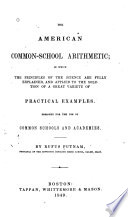 | Rufus Putnam - Arithmetic - 1849 - 402 pages
...4050, which is 3f. Ans. 3.тo. 18 d. RULE. Multiply each debt by the time to elapse before it is due, and divide the sum of the products by the sum of the debts ; the quotient it the equated time. 2. A man owed $20 to be paid in 3 months, $50 in 4 months,... | |
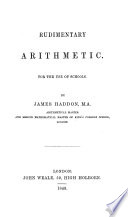 | James Haddon - Arithmetic - 1849 - 144 pages
...payments, due at different times, should be paid at once. BULE. Multiply each payment by its time, and divide the sum of the products by the sum of the payments. PARTNERSHIP. Partnership or Fellowship is a method of finding the shares in the profit or... | |
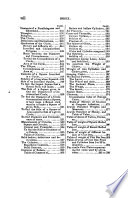 | Thomas Rainey - Arithmetic - 1849 - 320 pages
...Multiply the sum of each payment by its time, add the several payments: then, add their products ; and divide the sum of the products, by the sum of the payments. The several periods of time must be of the same denomination ; tither days, months, or y'ars,... | |
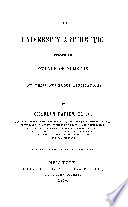 | Charles Davies - Arithmetic - 1850 - 412 pages
...the payments.) Hence, to find the mean time, Multiply each payment by the time before it becomes due, and divide the sum of the products by the sum of the payments : the quotient will be the mean time. EXAMPLES. 1. B owes A $600: $200 is to be paid in two... | |
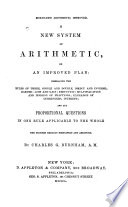 | Charles Guilford Burnham - 1850 - 350 pages
...---15=5 months, the answer. Hence the RULE. Multiply each payment by the time when it becomes due, and divide the sum of the products by the sum of the payments, and the quotient will be the time required. 2. A merchant has owing him $420, to be paid... | |
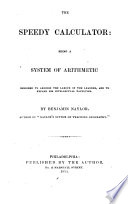 | Benjamin Naylor - 1850 - 334 pages
...above illustration we infer the following RULE. Multiply each payment by the time at which it is due, and divide the sum of the products by the sum of the payments, and the quotient will be the equated time. 2. E owes G $2400, of which $480 are to be paid... | |
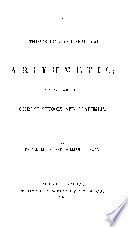 | Daniel Leach - Arithmetic - 1851 - 280 pages
...mixture, when the price of each ingredient and the quantity are given, — RULE. Multiply each ingredient by its price, and divide the sum of the products by the sum of the ingredients. The quotient will be the price of the mixture. 1. A grocer mixed 10 pounds of tea worth... | |
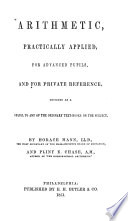 | Horace Mann - 1851 - 384 pages
...several debts : Multiply each charge by the time which has elapsed from jfhe date of the first bill, and divide the sum of the products by the sum of the bills. To find the equated time for the settlement of an account, in which there are both debits and... | |
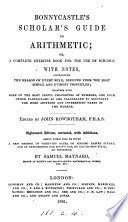 | John Bonnycastle - 1851 - 314 pages
...ingredients are given, to find the value of the compound. RULE.* Multiply each quantity by its rate ; then divide the sum of the products by the sum of the quantities, or the whole composition, and the quotient will be the rate of the compound required. EXAMPLES. (1.)... | |
| |